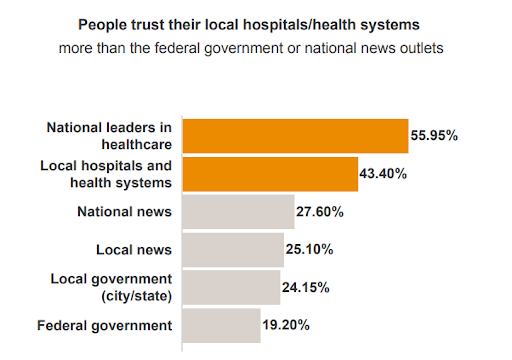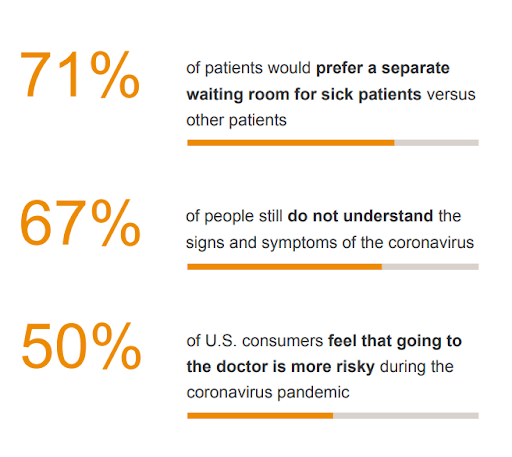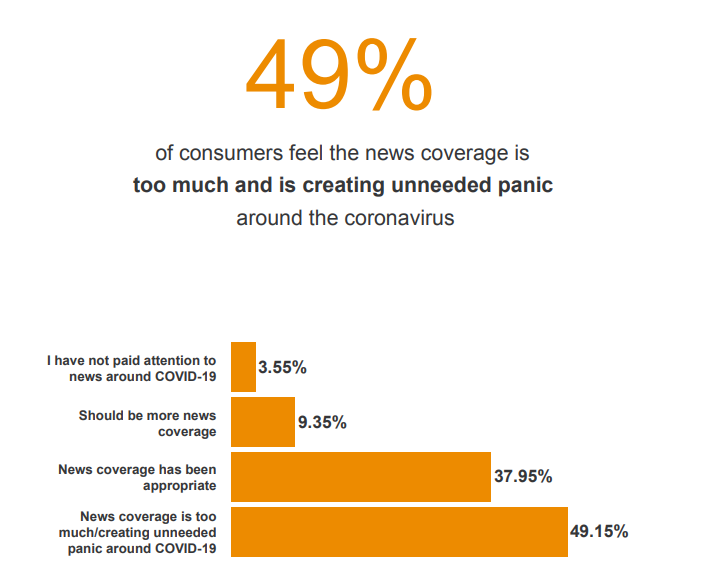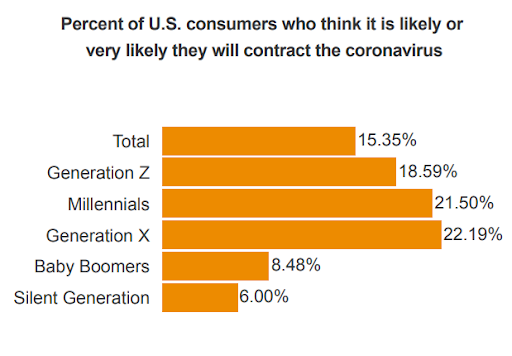There is a LOT of data being generated and published about COVID-19. The entire nation has been following stories of state-by-state infection rates, recovery rates, hospital beds available and projected infection peak dates. While all these data-points are really interesting, they don’t really inform a lot of actionable tactics if you’re a healthcare marketing professional.
However, NRC Health recently published some data on consumer sentiment that can actually help a healthcare marketer better understand how to address the concerns and needs of their community from a tactical perspective. The first point to consider from the NRC’s data is where consumers are looking for answers.
Who do consumers want to hear from?

And if you consider this information in conjunction with data on what sources consumers trust for information about the coronavirus, you can easily conclude that people want more information from their local healthcare providers.

The population is effectively asking for the MarComm function of the local hospital to shift into high gear and start generating useful, accurate, and trusted information that pertains to their local community. They want to hear from YOU!
What do consumers want to hear?
Those data points give us a really solid understanding that consumers want to hear from your organization. But what specifically do they want to hear? Well, for one thing, safety and risk are front-of-mind:

Has your healthcare organization made operational changes designed to keep patients safe? Does the public know about them?
And more in the vein of what consumers do NOT want to hear is more scary projections about COVID-19. Almost half of those surveyed feel that the news is creating panic.

Since the news already has plenty of coverage on statistics, spread rates, mortality, etc., that’s not what consumers are looking for from hospitals anyway. Instead, focusing on what this means to members of your local community is valuable and informative.
Who needs to hear what?
In marketing, we always start with the idea of knowing your audience (or understanding your typical patient “persona”). In this case, since we know which groups are at highest risk for COVID-19, it’s important to have messaging that is tailored to those groups.
Unfortunately, even though senior citizens are at the highest level of risk, there seems to be a major disconnect between the actual and perceived risk level, as is shown by the NRC Health data below:

If the patient population most at risk is also the one least concerned about that risk, we have a serious gap between perception and reality that the healthcare marketer can help to close.
So taken together, here’s what the consumer sentiment data can tell us:
1) Consumers WANT to hear from their local healthcare organizations and providers about COVID-19.
- Are you providing a stream of locally relevant information to your community? (Blogs, videos, social media updates, etc.)
- Are you promoting that content in any way to ensure it’s reaching as many people as possible?
2) Consumers are afraid to go to the doctor’s office or the hospital.
- Are you running marketing campaigns to let the public know about your telehealth services?
- Have you made your facility safer for non-COVID-19 patients?
- Have you told your community what you’ve done?
3) Older Americans who are more likely to have serious problems with coronavirus are less likely to believe they’ll contract it.
- Are you running any kind of marketing to inform this demographic?
These are all critical points to consider when deciding how to best approach your marketing efforts during the coronavirus pandemic.
You can contact us with your questions here. And for more helpful updates and strategies for dealing with COVID-19, visit our resource page.



